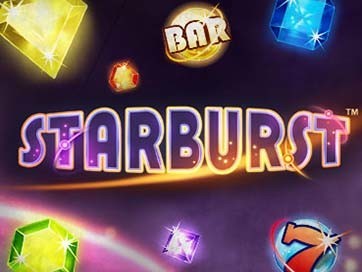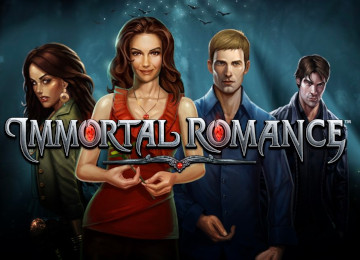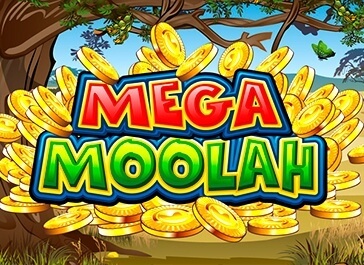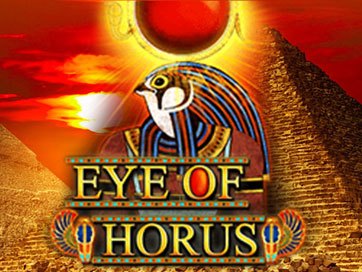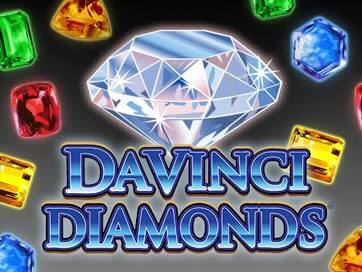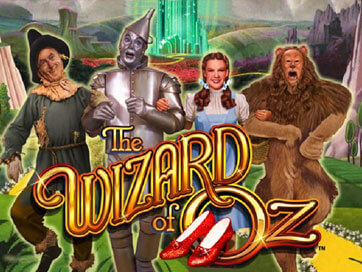-
Bonuses
- £5 Deposit Slots
- Free £5 No Deposit Casino UK
- 10 Pound Free Casino
- 15 No Deposit
- 20 No Deposit Bonus
- 15 Pound Free Bingo
- 20 Free Spins
- No Deposit Keep Winnings UK
- 50 Free Spins
- 100 Free Spins
- 200 Deposit Bonus
- 300 Deposit Bonus
- 400 Deposit Bonus
- 500 Deposit Bonus
- First Deposit Bonus 2024
- Welcome Bonus
- Casino Bonuses
- Bingo No Deposit No Card
- Bingo No Deposit Casino
- Bingo No Deposit Bonus
- Casino Bonuses Guide
- Best Casinos
-
Best Online Slots
- Slots For Fun
- New Slots 2024
- All Slots
- Free Bonus Slots
- Free slots no download
- Video slots
- Online slot machines
- Mobile Slots
- Pay By Mobile Slots
- Free Spins No Wagering No Deposit
- Daily Free Spins Coin Master
- Enjoy Free Spins with No Card Details Needed 2024 in UK
- Coin Master Cards
- Free Online Scratch Cards
- Slot Volatility
- Win Real Money
- Apps
- Payments
A Complete History of Dice
Dice games have been played for thousands of years and are a staple of the playground, board games, and casinos alike. This complete guide spans the history of dice and offers clear and concise explanations of popular dice games.
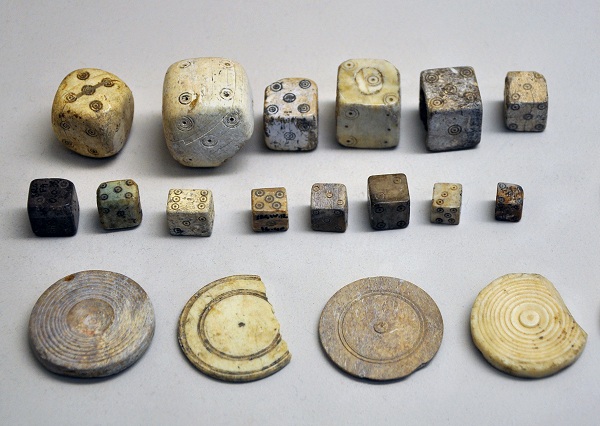
History of Dice: First Mentions
Archaeologists couldn’t find the first human who threw dice, but they know one important thing: dice-throwing is a custom that appeared independently all across the globe – in the populated regions. Scientists claim that the oldest dices date back almost 5,000 years, and consists of found objects such as seashells, fruit pits, and pebbles. However, the direct precursor of modern dice is the bone: bones of hoofed animals, such as oxen and sheep. Later in the history Greeks called these bones astragali – with 2 rounded sides and four flat ones that could be landed on. The side that would be facing up after tossing the astragali was a gamble to our ancestors.
We must say that the first dice throwers were not gamers – they were some sort of religious shamans who used the astragali (as well as rocks, animal entrails, or sticks) for divination, trying to predict the future py interpreting different signs from the gods.
Then there are the voices who claim that this line between gambling and divination is quite blurred. Some say that hunters used dices to choose where to search for game – they were using astragali to plumb the future.
It is said that dice first appeared in board games in Ur, a city in ancient southern Mesopotamia. Now referred to as the “Royal Game of Ur,” this old version of backgammon (circa 2,700 BC) used a 4-sided, pyramidal dice.

A brief early history of dice sounds like this:
- 3150 BC: Oldest hieroglyphics with Senet boards found. Senet game uses two-sided playing pieces to obtain random numbers.
- 2650 BC: Oldest confirmed dice. There were found pyramidal d4s in the board game, called Royal Game of Ur from ancient Sumeria. Currently at British Museum.
- 1900 BC: Cubical dice discovered in some Egyptian tombs. Evidence in Encyclopedia Britannica.
- 750 BC: Tuscania dice discovered near Rome. These are cubical dice featuring many standard pip markings.
- 3500 BC: Earliest written records of dice, in the Mahabharata – the Sanskrit epic. Evidence in Encyclopedia Britannica.
Evolution of Dice Game: Ancient and Medieval
Ancient Times
In the 1st millennium B.C., civilizations thrived in China, India, and Greece, – and they all threw dice. In ancient Rome, it was extremely common for gamblers to call out the goddess Fortuna’s name while throwing a 20-sided die during a game of luck. However, dice games were actually illegal in ancient Rome, except during the winter solstice festival of Saturnalia. Everyone was playing though.
There’s also a famous history note from General Julius Caesar, who proclaimed „Lea iacta est.” – in translation: „The die is cast.” – when he led his army to attack Rome in 48 B.C. Later Roman emperors and leaders were also crazy about dice games – including Caligula, Mark Antony, Commodus (he even built special dicing rooms in his palace), Nero, and Claudius.

In ancient China, people used sqare dice as well. However, the Chinese were notorious for avoiding cheating, so they used to throw dice into pottery bowls.
In ancient India, people were using cubic dice since the Harappan period, aboud 2000 B.C. Some Indians used stick dice, with look like flattened toothpicks – with 4 sides. Native Americans also used stick dice – and quite surprisingly, women played dice more than men did. Central American people used to throw beans to see which way they would land.
Medieval Times
With the fall of the colossal Roman Empire, many of civilization’s inventions and advancements quickly fell out of use. Dice were not among them though – people continued to play dice games during the Middle Ages. Dice games became one of the few leisure activities affordable to peasants and poor people. In Africa and the Americas dice played a huge role amond indigenous people and tribes, for both divination and recreation.
China’s 12th-century brought a variation of dice games that let to the introduction of dominoes – the flattened-out dice.
However, it was in Medieval Europe where the popularity of dice games soared, starting in the 1200s with a simple game called Hazard that was played by both commoners and aristocrats. Over the next hundred years the Catholic Church tried to ban all gambling games, but with no success.
Famous dice players
Famous dice players, such as the Roman emperors Caligula, Mark Antony, and Augustus lost huge amounts of money playing dice games and quickly stole other people’s to continue their gambling sprees. In the early 19th century, fortunes could be lost and won at the roll of a die and it was not only cash which was gambled away, but marriages and even estates.
Read also: TOP 5 summer slots – infographicsThe ancient history of Egypt presents hieroglifs about the god of magic and learning and wisdom – Thoth.

Dice in Arts – Literature, Paintings, and Movies
Since literature had its roots in Europe, we have to say that dice games were widely prevalent in Elizabeth’s time, as it has been in every period in Great Britain and France as well, and the allusions to it in the literature are many – including Shakespeare.
Regarding paintings, in Ancient Rome dice were shaken in a cup then tossed, as croupiers do today. Bets were placed the same manner as we place them today. Roman wall paintings indicate they they used to play with 3 dice, while the images of Achilles on vases suggest the Greeks used to play with 2 dice.
In modern times there was even a novel published on dice games: The Dice Man, by George Cockcroft (1971). Early years have brought numerous titles on Amazon and in the land-based libraries, with many professional gamblers writing on how to ace the dice games, such as Load the Dice, by Moriah Gemel, and A Roll of the Dice by Stéphane Mallarmé.
Dice as Dungeons & Dragons System Basics (Video Game Use)
Dungeons & Dragons is that fantasy RPG originally designed by Gary Gygax and Dave Arneson, and first published in 1974. The game has been published by Wizards of the Coast (now a subsidiary of Hasbro) since the year of 1997. Derived from miniature wargames with a variation of the Chainmail game serving as the initial rule system, it’s now widely-known as the beginning of modern RPGs.

Dice are the base of these type of RPGs. For each action in the d20 System, the players rolls a 20-sided die and adds modifiers based on the original aptitude of his character (defined by six abilities: Dexterity, Strength, Charisma, Intelligence, Wisdom, and Constitution). Dungeons & Dragons was the first ever role-playing game and it established many of the conventions that have dominated the genre. Particularly notable is the use of dice as a game mechanic, along with character record sheets, gamemaster-centered group dynamics and the use of numerical attributes.
The outcomes of complex or risky actions in Dungeons & Dragons are determined by rolling dice, as we already said. Factors contributing to the outcome include the character’s skills ability scores, and the difficulty of the task.
All in all, set in a medieval fantasy world, Dungeons & Dragons allows you to experience adventures and stories full of amazing possibilities and endless surprises – and everything is determined with dice.
21st Century Online Dice Games
Having been with us for at least 5000 years, it’s fair to say that the humble dice has stood the test of time. Recently the die has been dragged into the digital age. The 21st century and the stunning technology that has been developed in the recent couple of years have brought an immense collection of online dice games, including math dice games, zilch dice games, farkle dice games, and much more (you can try demo version of craps on our website 777spinslots.com). There thousands of games based on dice throwing nowadays – both online and in real life.
Let’s take for example Wheel of Dice, a successful live casino game which mixes elements of roulette and dice no deposit slots. The game is available 24/7 on multiple gaming websites.
Nowadays everyone can play well-established 21st century games such as Monopoly, Backgammon, Scraps, Farkle, Yahtzee, Bunco, Dungeons and Dragons with the age-old method of random number selection – dice.

Dungeons and Dragons is the most famous dice-based RPG, and having been developed in the mid 70s, it is responsible for just about all of the weird dice that are around today other than normal six sided (d6) ones. This RPG game uses different numbers such as d4, d8, d10, and d20 to help the player develop their character. The creators of this successful online game are considered the fathers of role playing games.
Did you know?
- Dice derives from the Latin saying, meaning “ought to be played”
- Indian people first played dice games around 3000 B.C.
- The black marks that show the numbers are called pips
- Normally cubed, dice come in other geometric shapes as well, including the deltoidal icositetrahedron, 100-sided die, and the zocchihedron, where each side is shaped like a kite
- Dice were initially created from bones, including ankle bones and knuckle

Try out our Real Money Slot Machines
